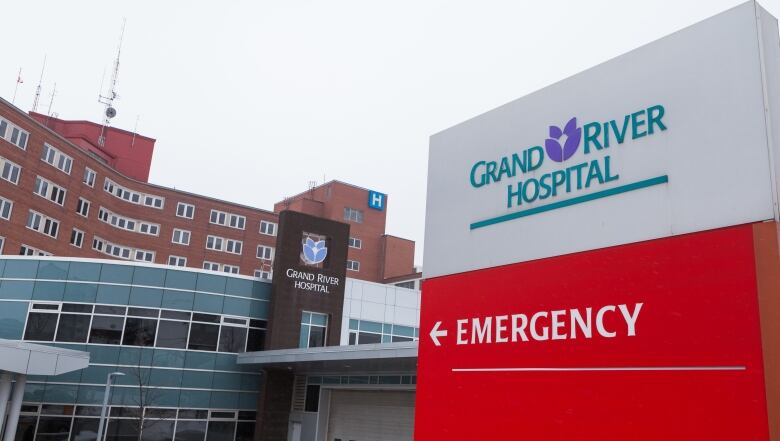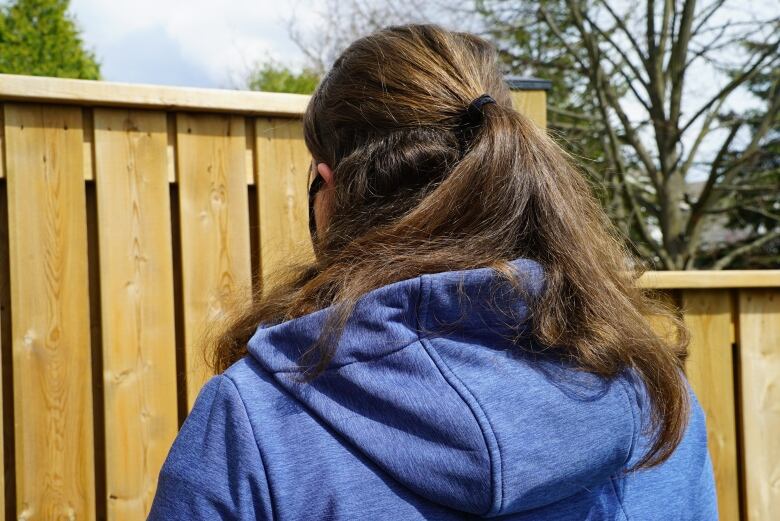'People are definitely more ill': Mental health system faces new pressures during COVID-19
Content warning: This article discusses suicide and self-harm
Content warning: This article discusses suicide and self-harm.If you are in crisis call Here 24/7: 1-844-437-3247 (HERE 247).
Now age 27, Lauriehas lived with mental illness since she was 14. Over the years, her condition has fluctuated, but she says things got much worse when the first provincial lockdown began last March.
"My anxiety just skyrocketed, my self-harm and suicidal ideations took off even more than they'd ever been before," said Laurie, who lives in Waterloo, Ont., and whose name has been withheld to maintain health-care privacy.
"COVID's definitely been really hard."
Laurie isn't alone in feeling the mental health toll of the pandemic.
There are signs the mental health system in Waterloo region, which has long faced capacity issues, isunder increasing pressure in apandemic that isn't expected to let up in the near future, as Ontario grapples with athird wave of COVID-19.
In recent months, Grand River Hospital in particular has faced increasing pressure for both inpatient and outpatient mental health services, saysChristine McLellan, program director for acute mental health and addictions.Grand River Hospitalis home to the region's largest inpatient mental health unit.
Inpatient beds in high demand

On the inpatient side, McLellansaid the hospital has seenmore patients in need of intensive psychiatric care which hasputan added strain on the hospital's limited supply of mental health beds.
In total, Grand River Hospital has 52 adult inpatient beds and eight intensive psychiatric care beds, which are dedicated for people who need a high level of supervision and are often experiencing psychosis.
"There's demand for both [types of beds], but for us the notable difference is the level of care required; people are definitely more ill," said McLellan.
As of March 24, the hospital was running, on average, over 107 per cent capacity in its mental health unit.The latest year-to-date average capacity was not available by publication time, but McLellan said she "would not expect it to be less."
To meet the need, staff have had to treat patients in a space that's usually intended for short-term psychiatric assessment. When that space is full, McLellan said they've overflowed into the emergency room and, at times, the child and youth psychiatric intensive care area.
And while the hospital has the option to send patients elsewhere in the region, McLellan said "they're experiencing similar things we are and don't have much capacity either."
Laurie, who said she has been hospitalized more than a dozentimes since the pandemic began, said she's noticed those capacity pressures,too. During recent visits she said she's waited longer in the hospital's evaluation and assessment unit and, during her most recent stay, was treated in the surgical unit.
"You could tell they were under stress," she said.
While the hospital said it has used itssurgical ward for mental health inpatients it would not confirm if Laurie was one of them, citing patient confidentiality.
Hospital stuck playing catch-up
Meanwhile, referrals for the hospital's outpatient psychiatric services have also been on the rise. In January 2021 these referrals more than doubled over the year before. In February, they more than tripled.The number of outpatient referrals for March and April was not available by publication time.
The high number of referrals means it takes longer to bring patients in for a psychiatric assessment and McLellan said the hospital is stuck playing catch-up.
"It's taking longer to get in and get a psychiatric consultation, so whereas before it may have taken a week now it is taking three," said McLellan, who said she worries people may become more ill during the timethey're waiting.
Meanwhile, the Waterloo-Wellington branch of the Canadian Mental Health Association has also reported an uptick in service demand from people with more complex forms of mental illness and addiction.
Since the pandemic, calls to the organization's Here 24/7 crisis line have increased from about 4,500 calls a month to more than 6,500.
Meanwhile, there are more than 3,600 people in the areasitting on waitlists for communitymental health and addictions services through CMHA Waterloo-Wellington.
"Through the pandemic, we have seen a tremendous increase in the needs, complexity and acuity of people with mental health and addiction issues across Ontario," said CEO Helen Fishburn in a presentation to a provincial budget committee earlier this month.
Have you sought treatment for mental illness during the pandemic? CBC Kitchener-Waterloo wantsto hear from you contact paula.duhatschek@cbc.ca.
Need for beds, psychiatrists, funding

In response to questions from CBC News about how the third wave of the pandemic will affect treatment or beds available topatients, a hospital spokesperson said it may take longer for people to get the right care.
"People may wait longer in [the emergency department] for a bed or go to a non-traditional space, outpatient consults will take several weeks instead of days," said spokesperson Cheryl Evans in an email.
McLellan saidanyone in need of help should still reach out through their family doctor, the CMHA's Here 24/7 line or if they are in crisis the emergency department.
Going forward, McLellan said she does worryabout the current strain on the mental health system and what it will mean for the future.
She said the hospital will continue to prioritize people with higher needs and respond as quickly as possible, but she worries how wait times may affect people in crisis or distress.
"An obvious risk for people experiencing depression, anxiety, isolation, who may be feeling suicidal, some of those people may actually follow through if they don't get the assistance they require in a timely way."
"That's a big concern, those are the things that keep people up at night."
She said some of the current burden on Grand River Hospital will ease as the hospital recently hired two additionalpsychiatrists.
But to meet the growing demand for mental health carein the community, McLellan said they need more of just about everything: more beds, more psychiatrists andmore outpatient services.
As for Laurie, she, too, believes the mental health system needs to be better-resourced. Even before this year, she said waitlists for psychiatrists in the region were prohibitively long.
She said there are likely even more people out there, dealing with mental illness but who haven't spoken out about it and she thinks there should be more resources available when theydecide to reach out for help.
"We don't always vocalize our experiences," she said. "You don't know who's struggling."
CBC News contacted the Ontario Ministry of Health to ask if Waterloo-Wellington may receive any additional funding for mental health and addictions services in the months to come. The ministry has not yet responded.
If you are in crisis call Here 24/7: 1-844-437-3247 (HERE 247). Kids Help Phone can be reached at 1-800-668-6868 or by text at 686868.













_(720p).jpg)


 OFFICIAL HD MUSIC VIDEO.jpg)
.jpg)



























































































